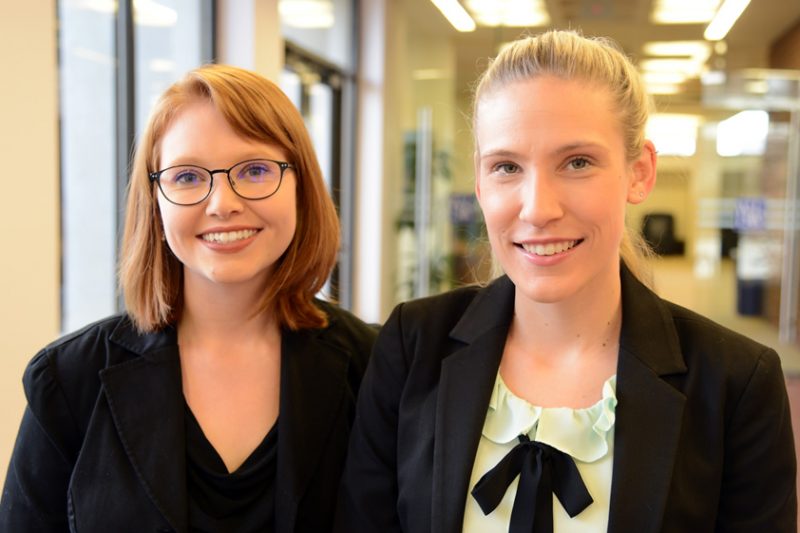Law Students Reflect on Shepherd Internships
Second-year law students Bethny Barrett and Lauren Bennett both organized summer internships through the Shepherd Program, which helped fund their summer work positions. Through the Shepherd Internship Program, students work with agencies that fit their intellectual interests in order to develop their experience and skills for future civic involvement and employment and to benefit under-resourced members of society. Below, Bethny and Lauren each offers some thoughts about the nature of their summer work.
Bethny Barrett
Last summer, I interned with the Women’s Center for Advancement (WCA) in Omaha, NE. In that position, I served survivors of sexual assault, domestic violence, and human trafficking through family and immigration law. Working in a small nonprofit allowed me to interact one-on-one with clients, to attend court, and to work on a variety of projects. I feel exceeding lucky to have spent my summer with the WCA. In my first summer, I landed my dream job.
My experience from last summer has influenced my course work and my next career moves. For instance, my 2L classes have largely focused on areas of law that uniquely impact women, such as employment, health, abortion, and family law. This summer, I will be working on female-focused policy reform and litigation advocacy. WCA taught me how to provide legal services to clients in crisis. Though the work could be challenging and sometimes draining, the internship confirmed that I can and should work in women’s nonprofit organizations.
Without Shepherd funding, I would not have been able to afford a nonprofit internship. I am focused on public interest work, but such work imposes a financial burden. Shepherd offered financial assistance as well as a community of other students going through similar internships. During the Shepherd Closing Conference, law students and undergraduate students shared stories about their organizations. These stories demonstrated the overwhelming commitment to serving others that can sometimes be overshadowed by day-to-day responsibilities, and, for that reason, I value my participation in the Shepherd program.
Lauren Bennett
The Shepherd Higher Education Consortium on Poverty Program made my 1L summer job possible. This past summer, I worked at the Mecklenburg County Public Defenders Office. The Shepherd Program funded my summer experience and gave me opportunities to become more informed about ways to diminish poverty through professional, civic, and political engagement.
During my internship, I worked firsthand with individuals from impoverished backgrounds. I discovered the many economic injustices within the criminal justice system, and I want to continue fighting these injustices as I pursue a career as a Public Defender. I am thankful to the Shepherd Program for not only funding my summer experience, but also giving me opportunities to further understand various deep-rooted effects of poverty.
Through the Shepherd Closing Conference, I was able to learn from other student’s summer experiences. This year’s conference theme–Criminal Justice, Poverty, and Race–aligned well with my summer experience. In years past the theme of the Symposium has related to topics such as Childhood Literacy and Food, Nutrition, and Health of Low Socioeconomic Families. It was great to listen to presentations from other students who participated in the program and to gain insight from their experiences.
I would highly recommend applying to the Shepherd Program to any W&L law student who is interested in a legal field that provides services to individuals of low socioeconomic status.
 Bethny Barrett and Lauren Bennett
Bethny Barrett and Lauren Bennett
You must be logged in to post a comment.